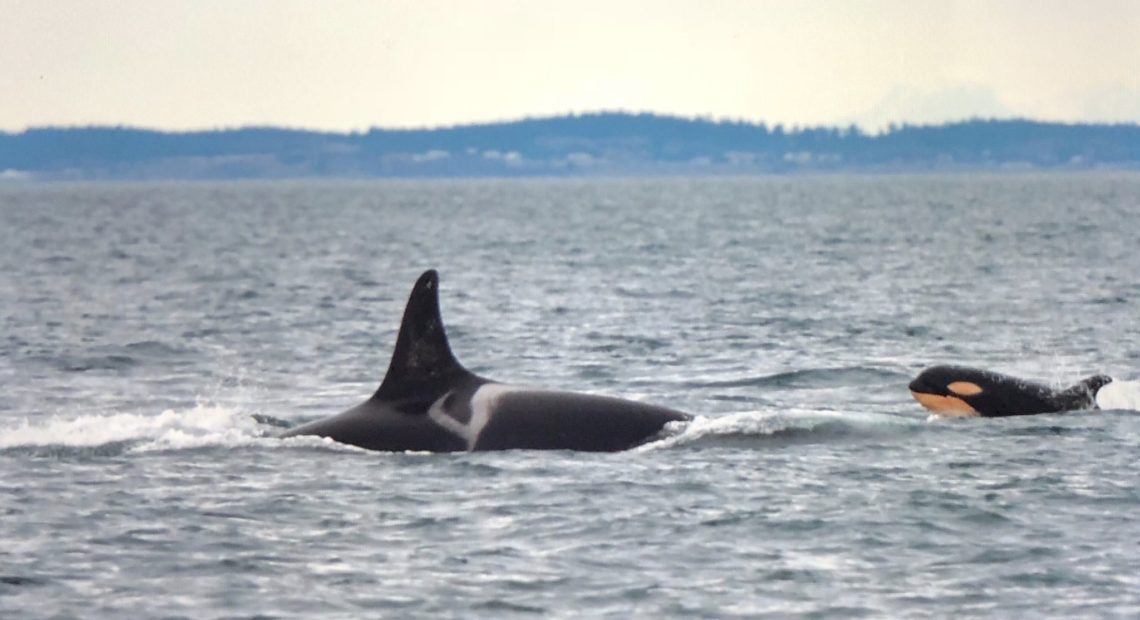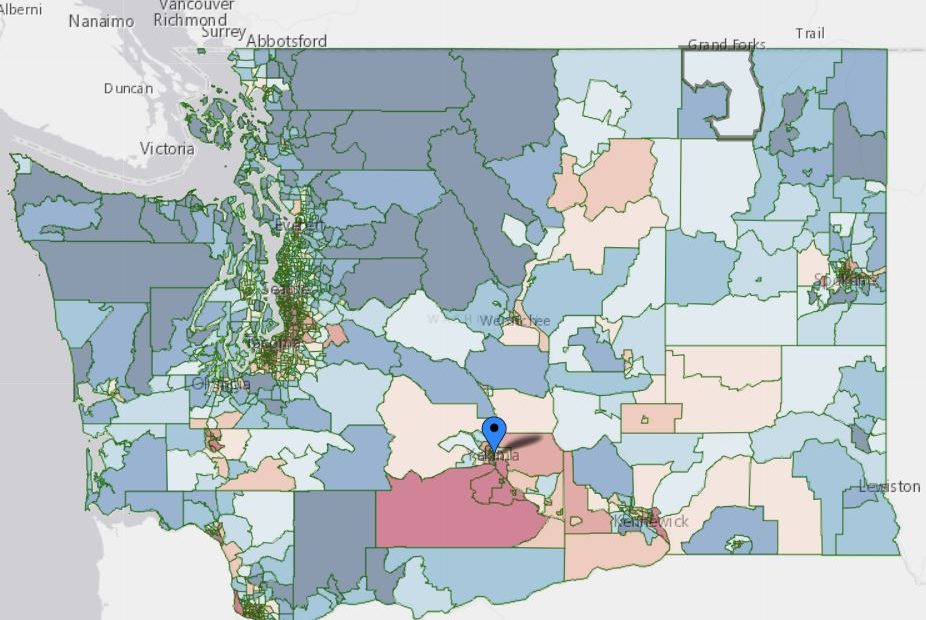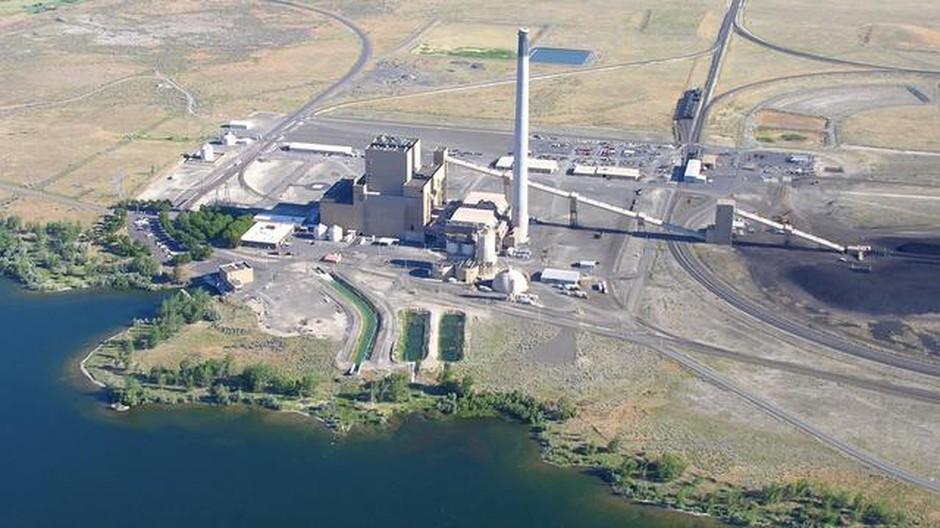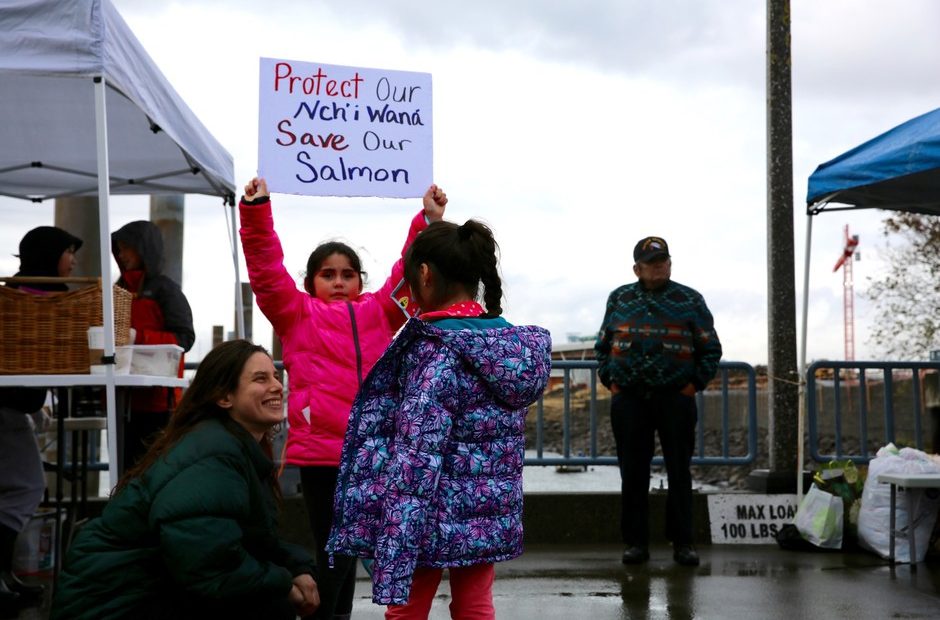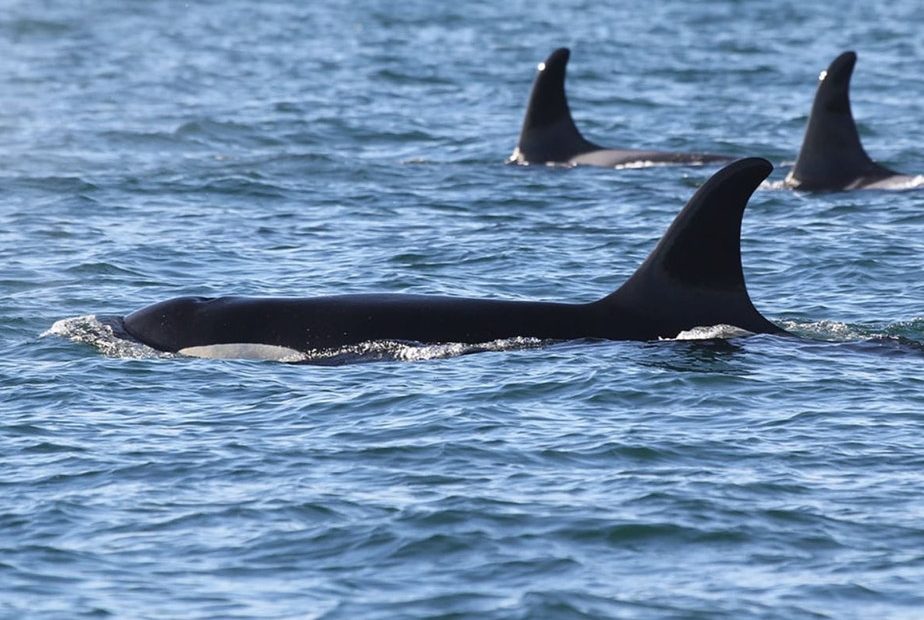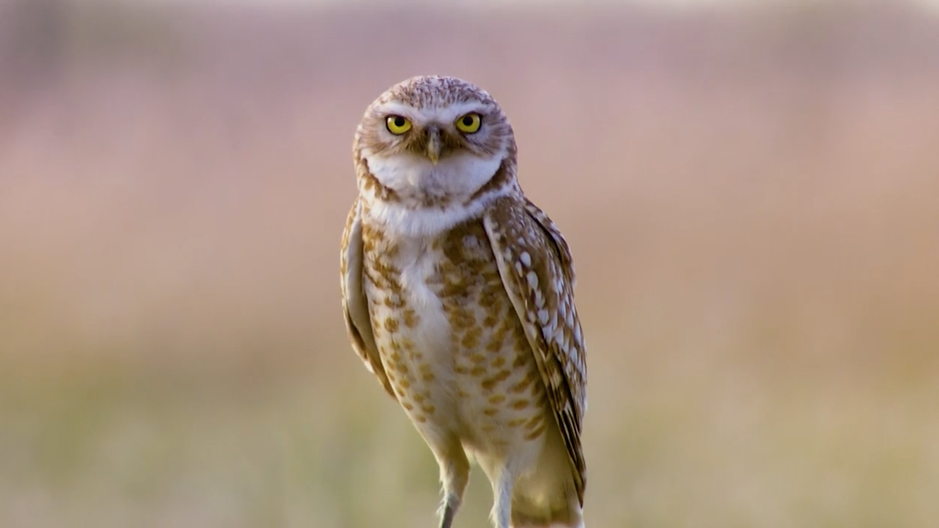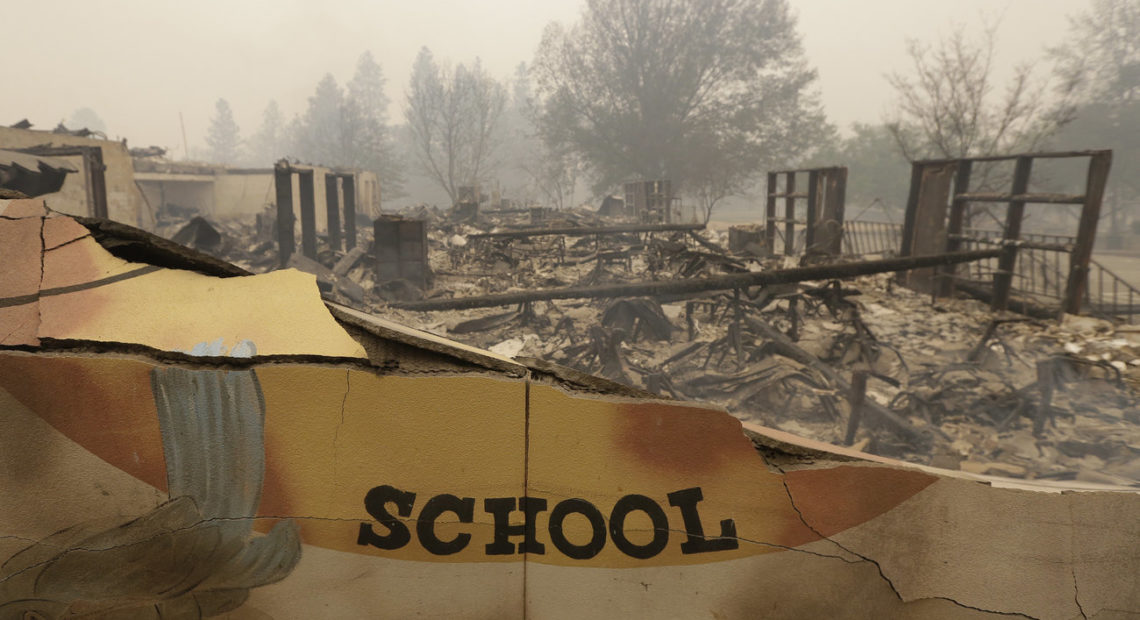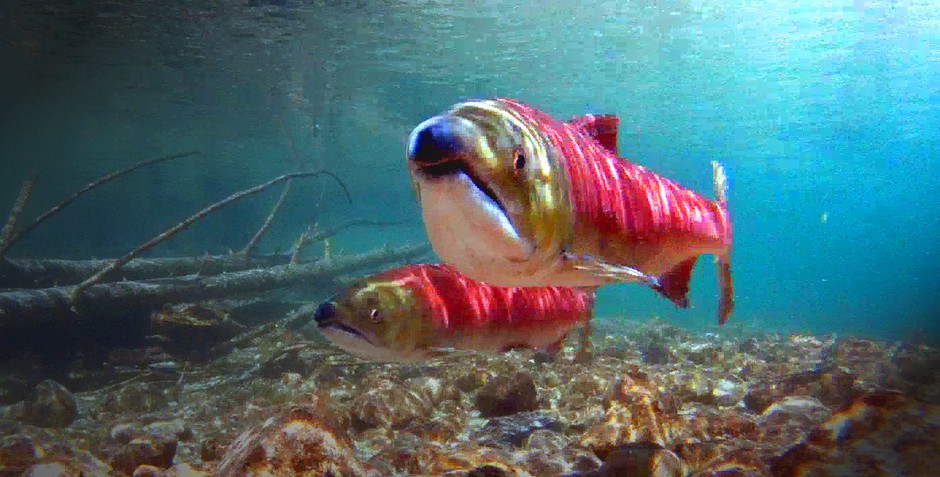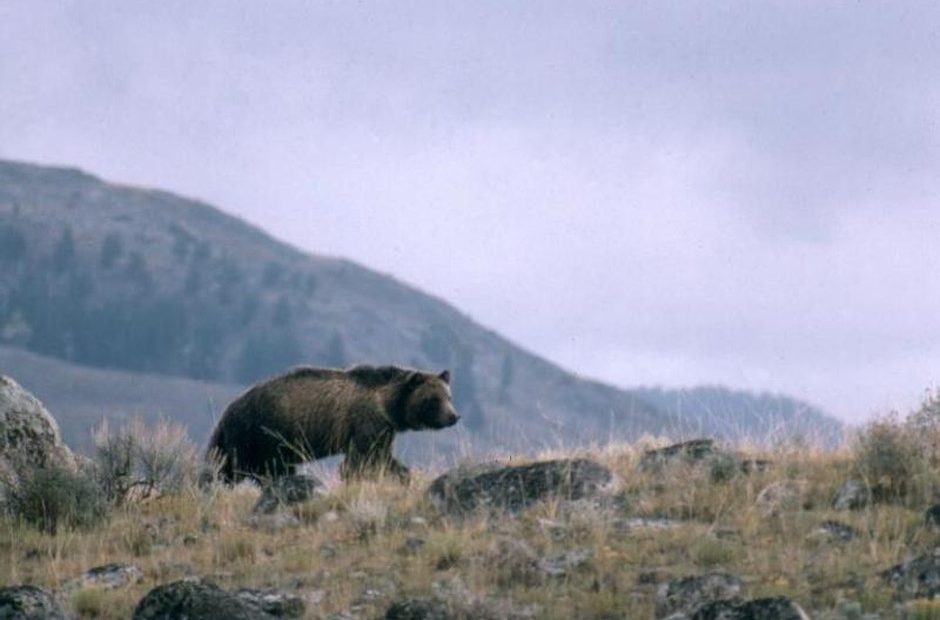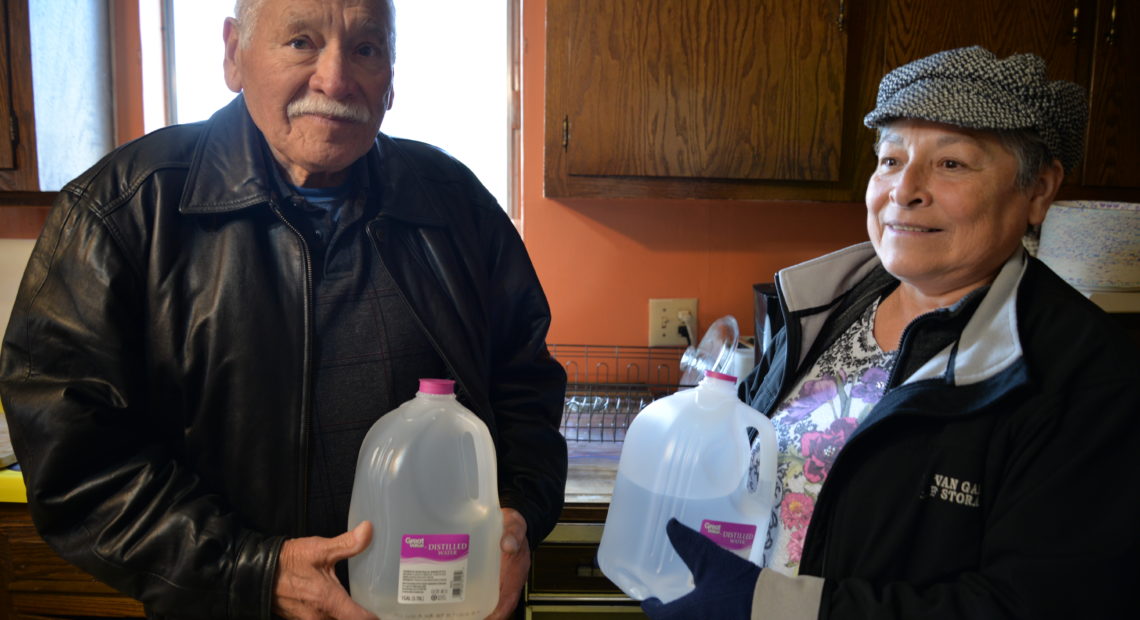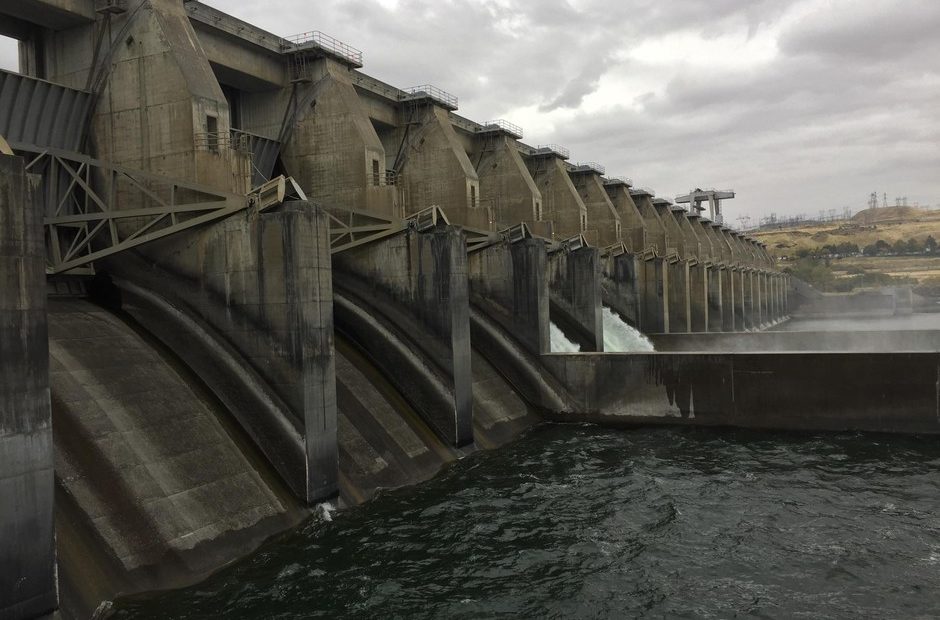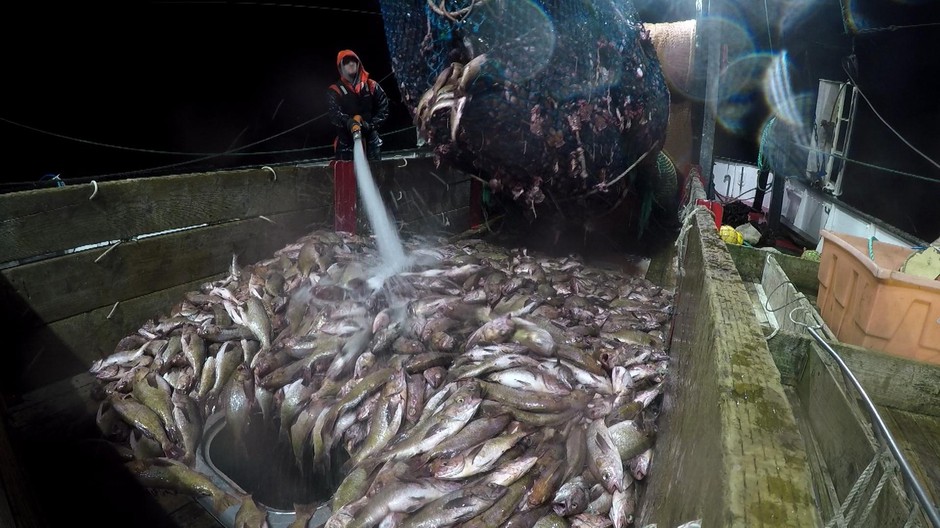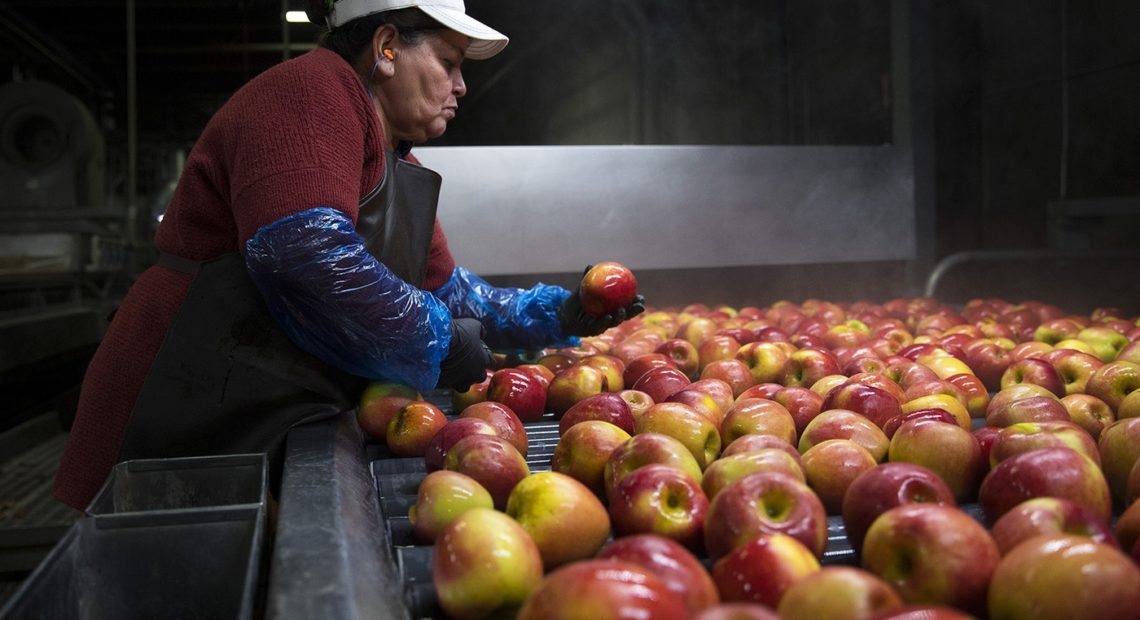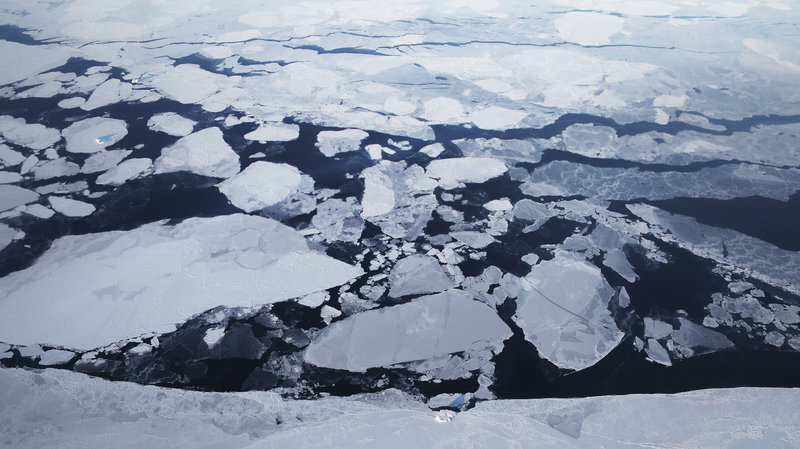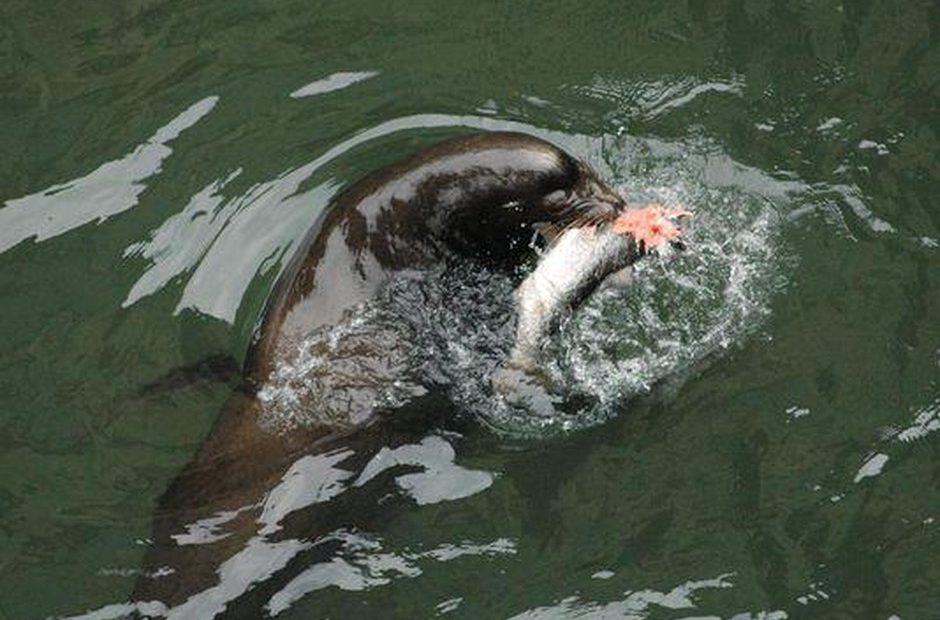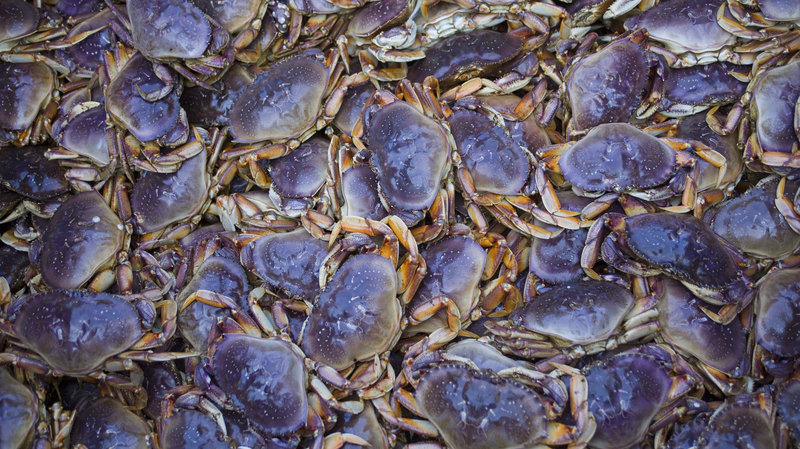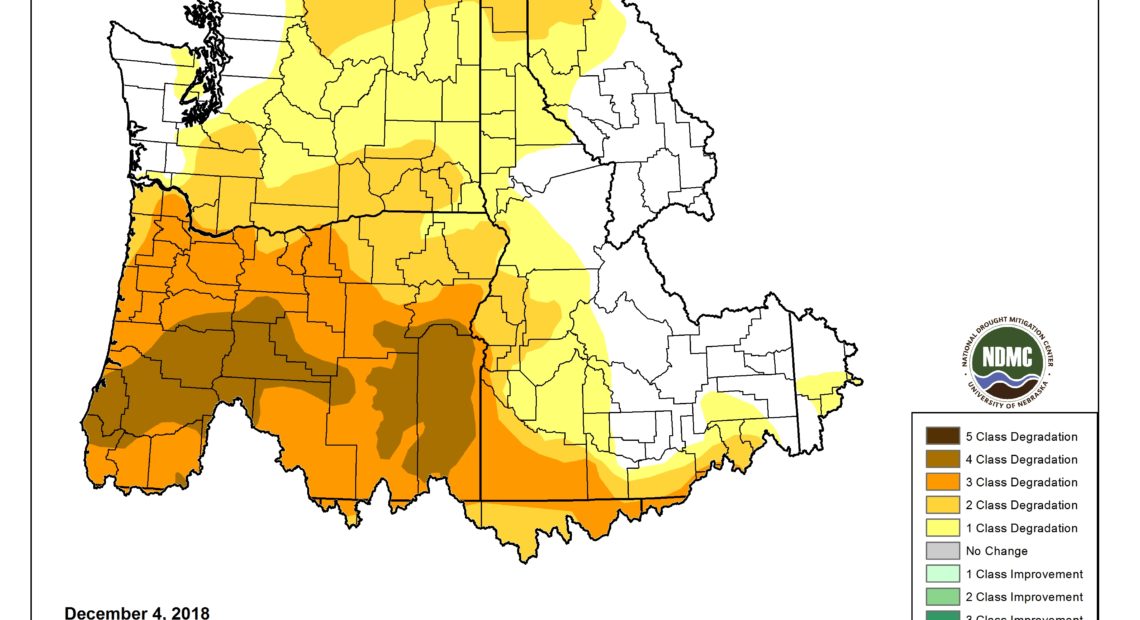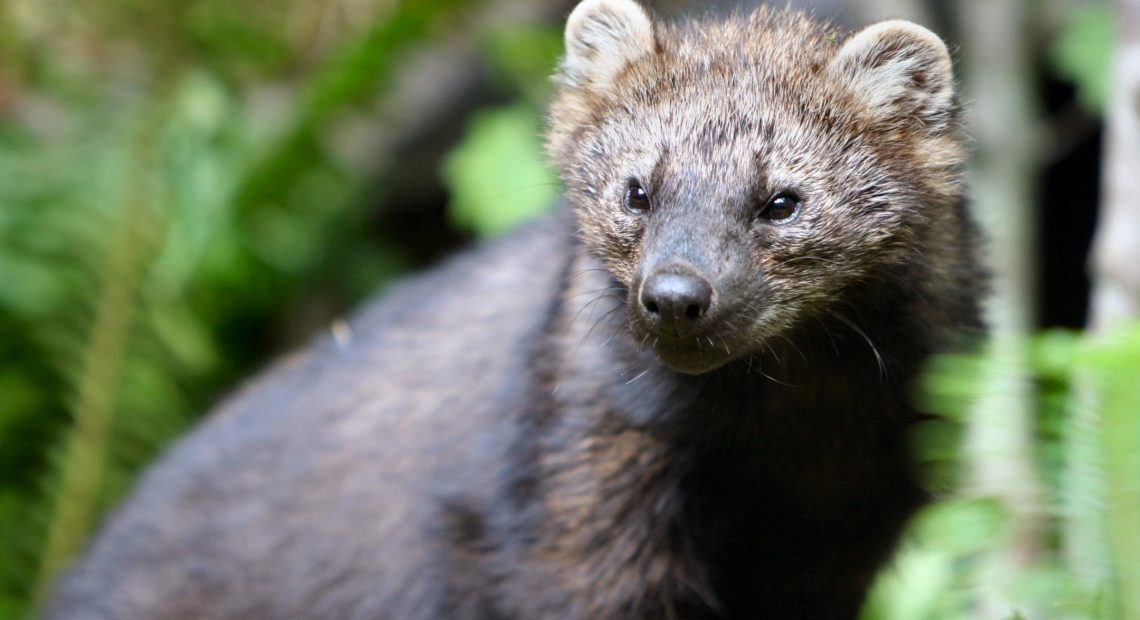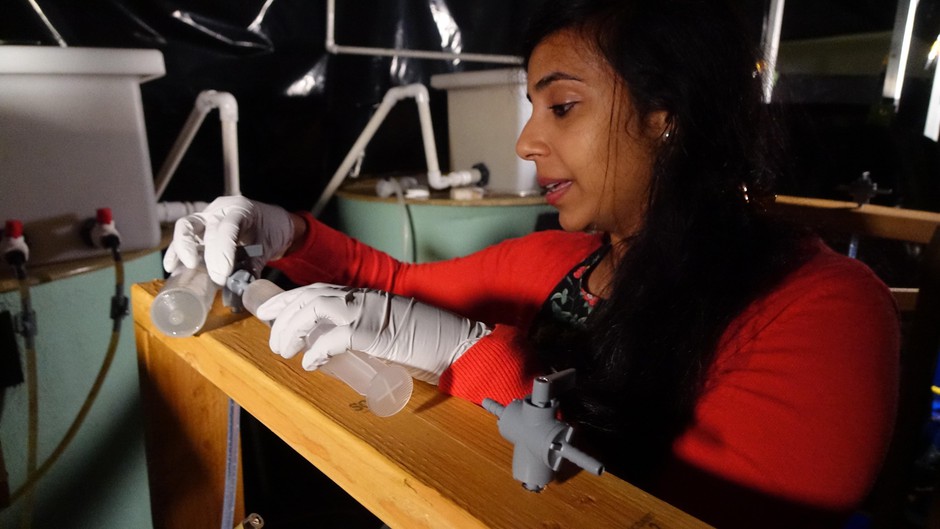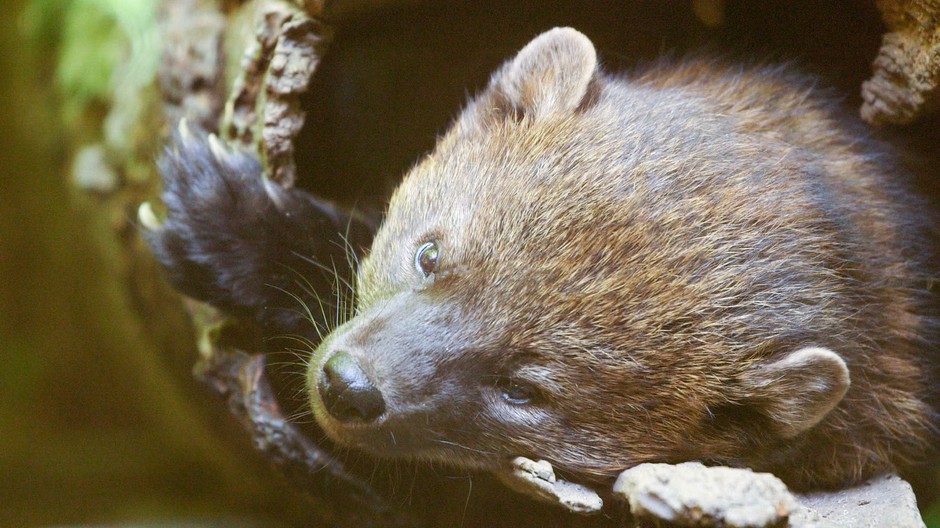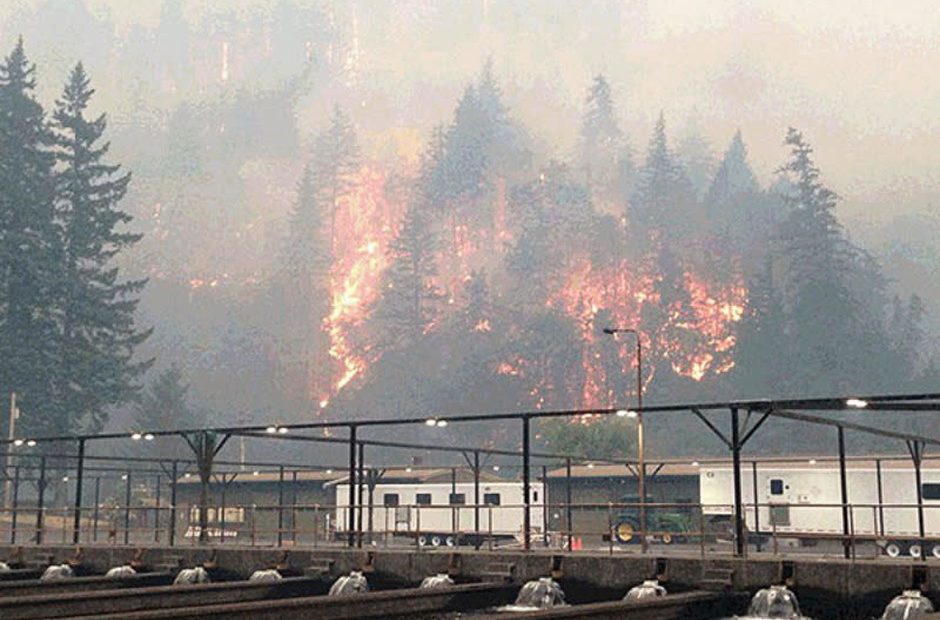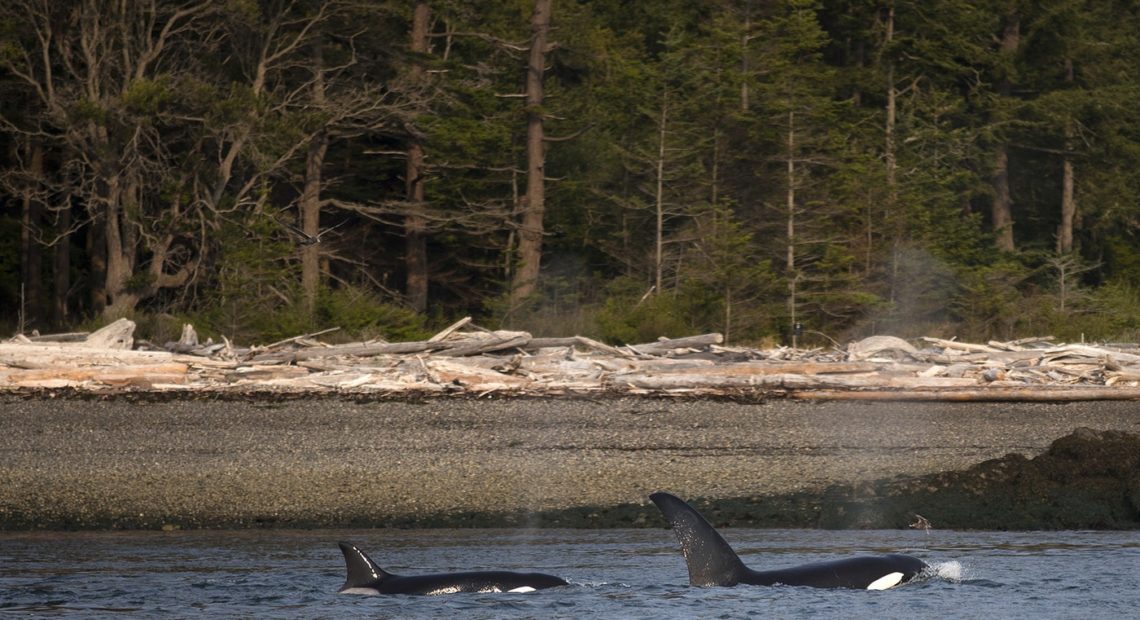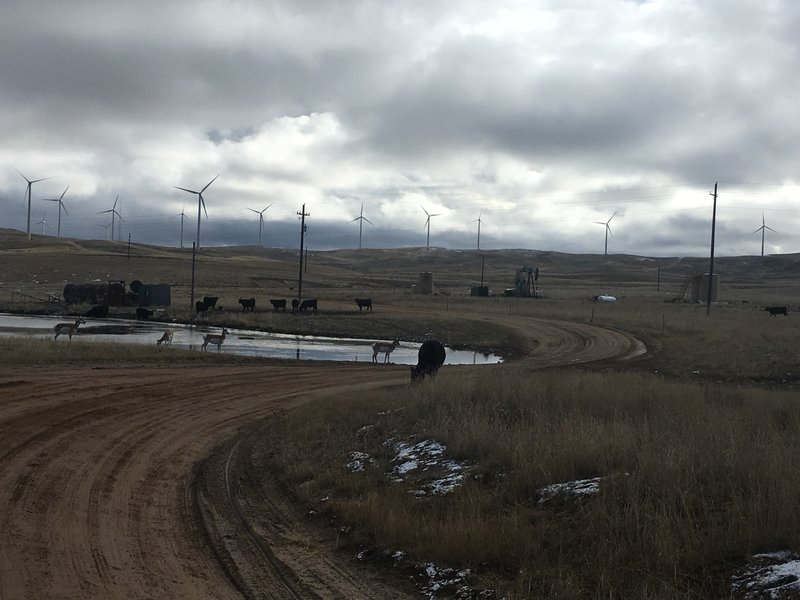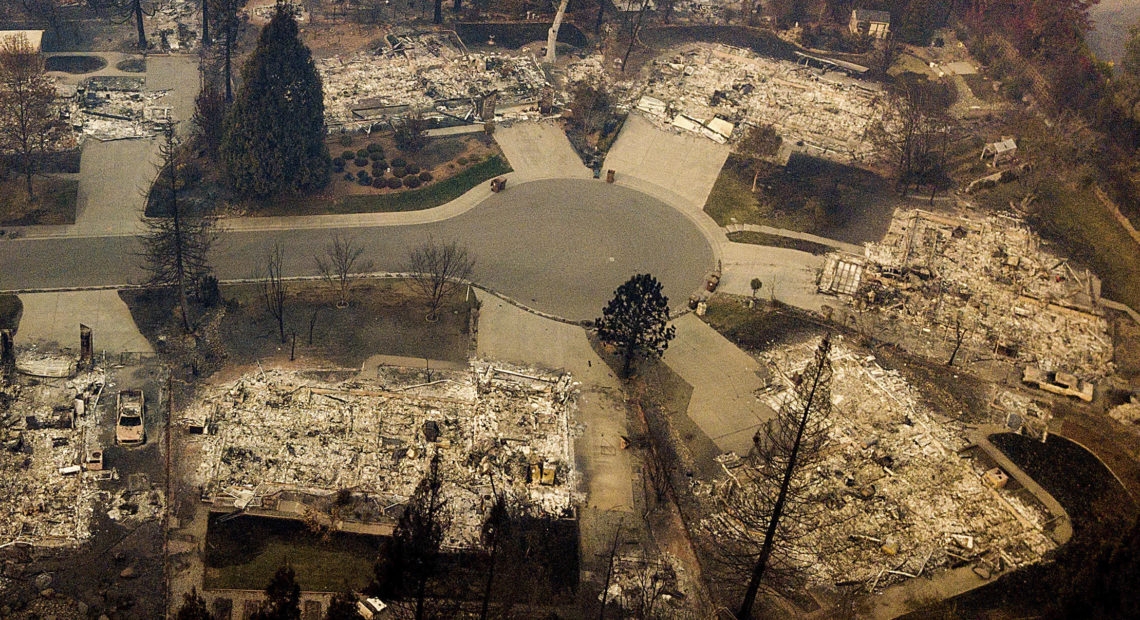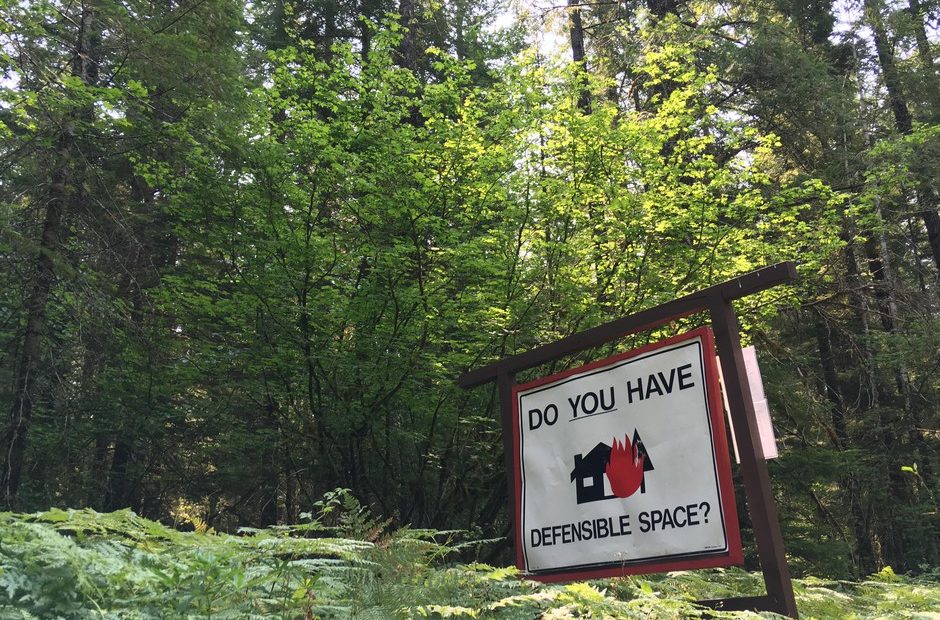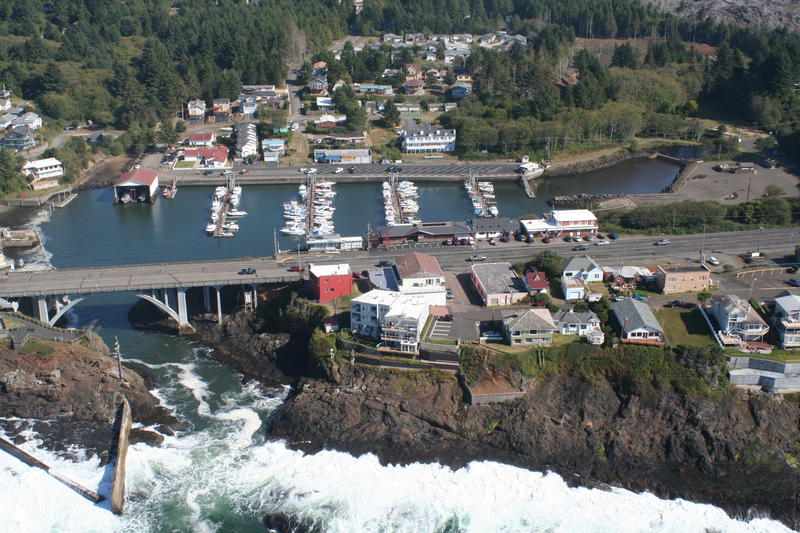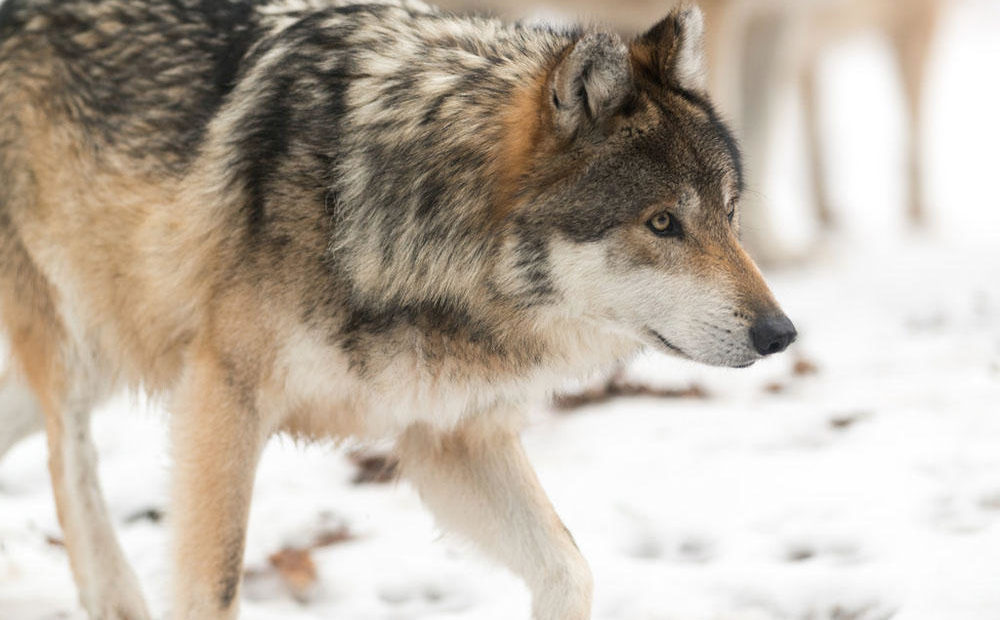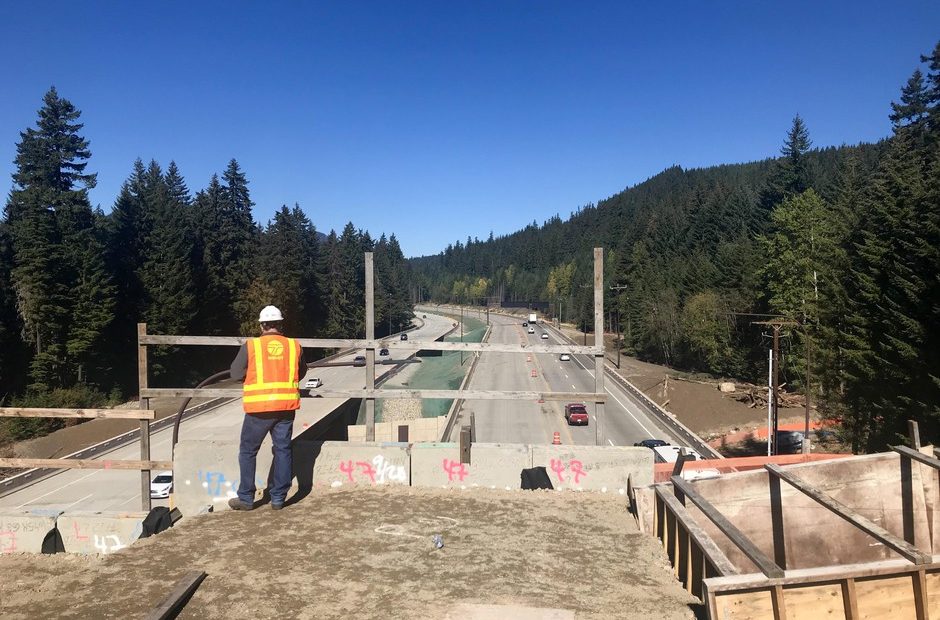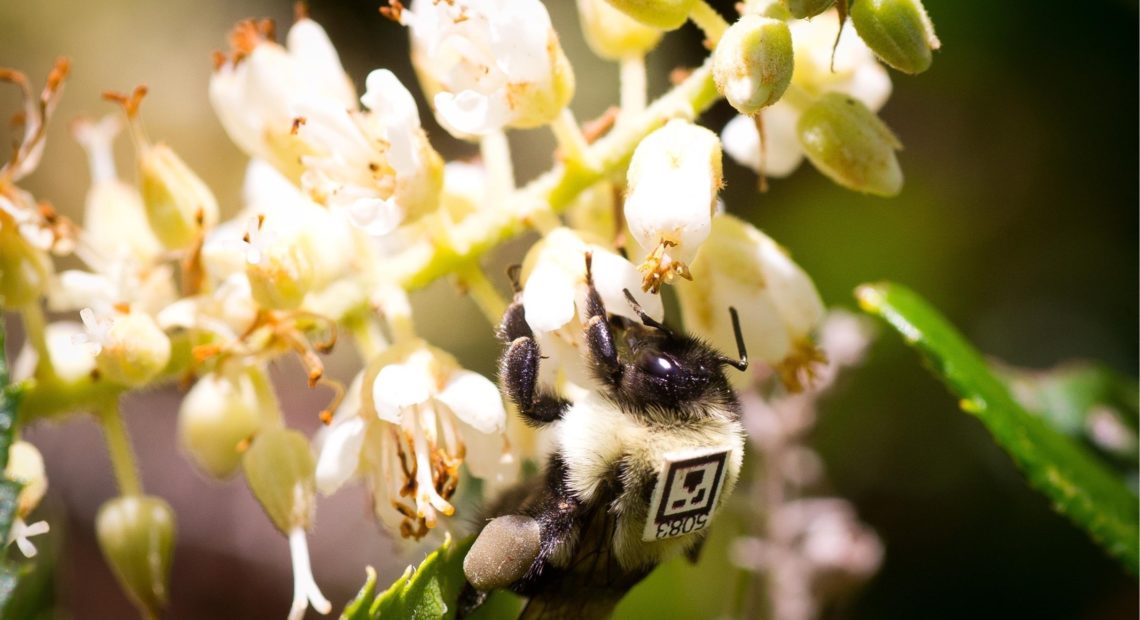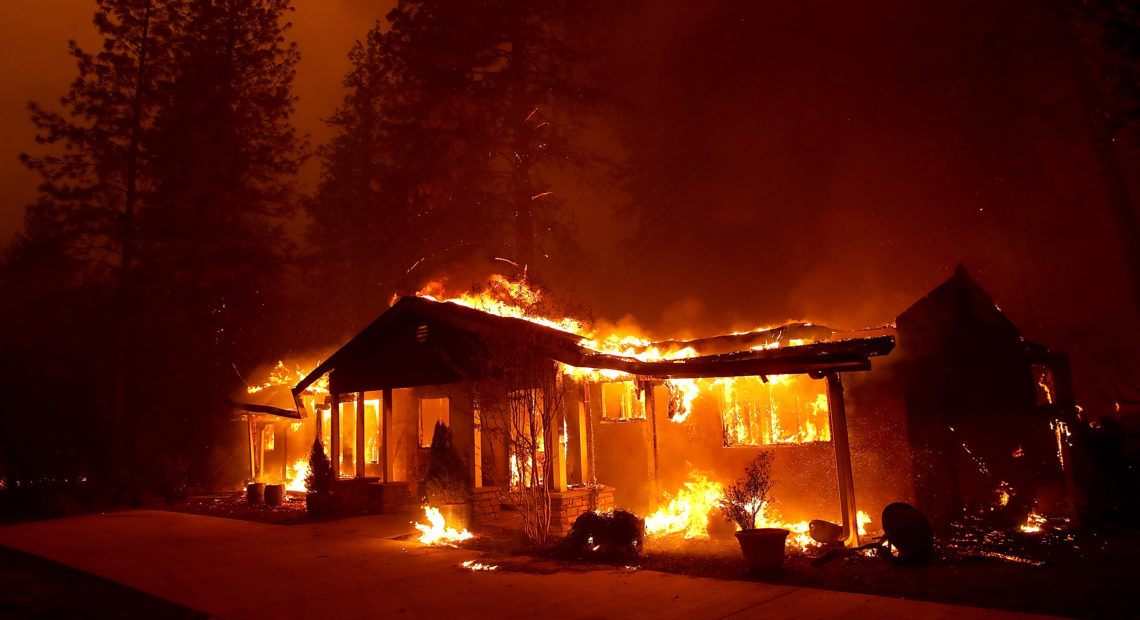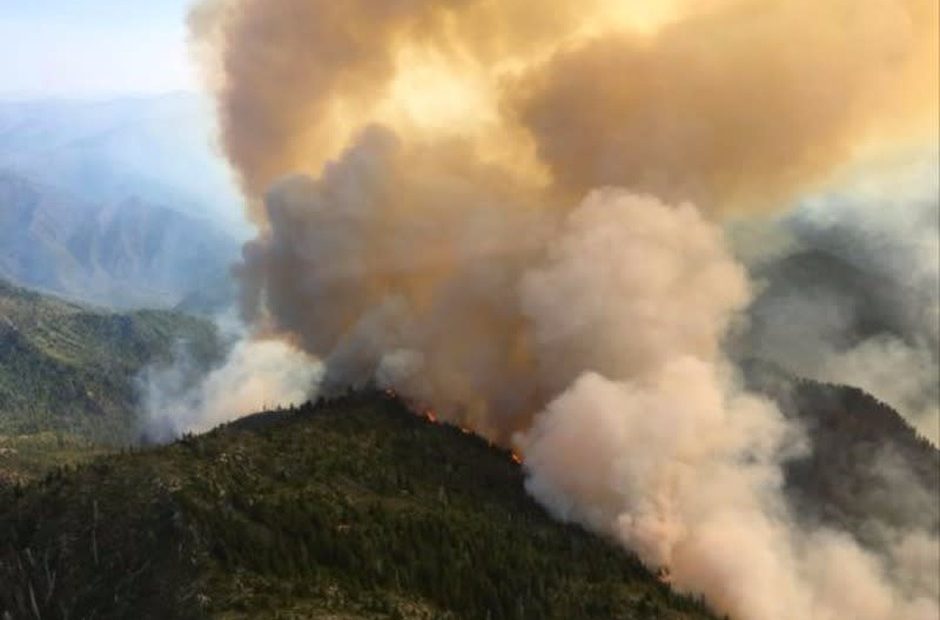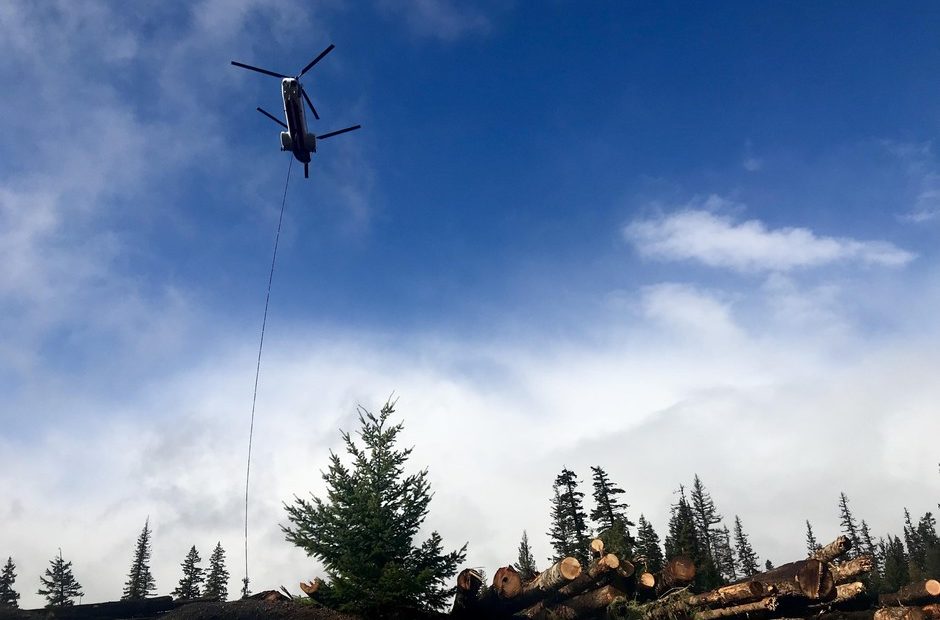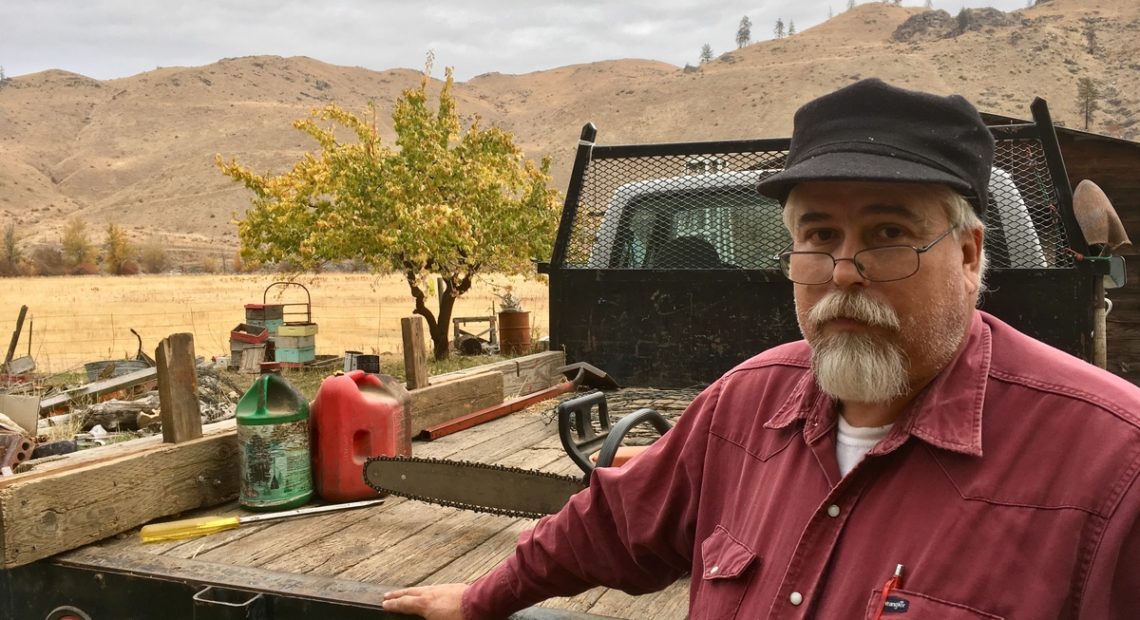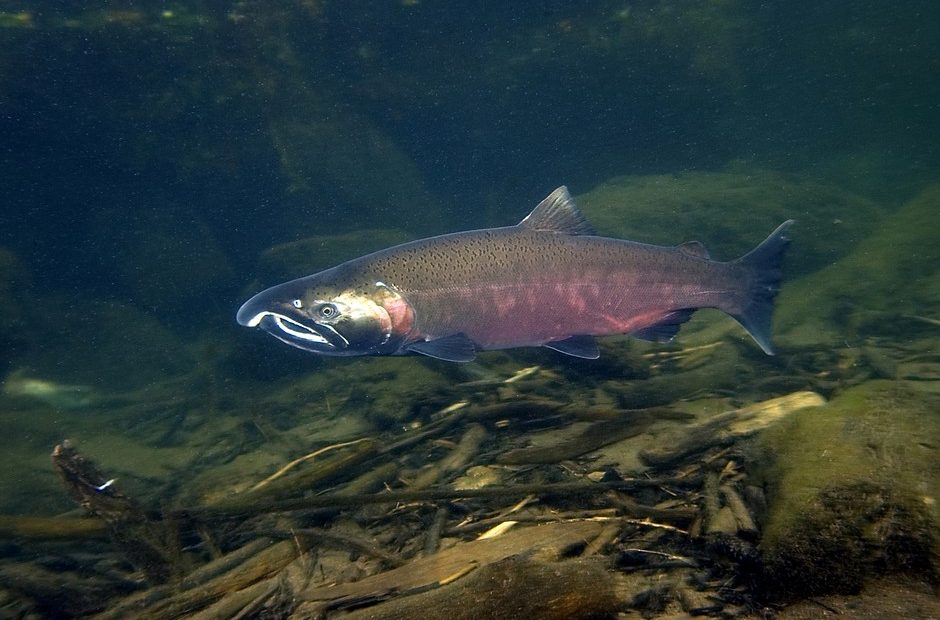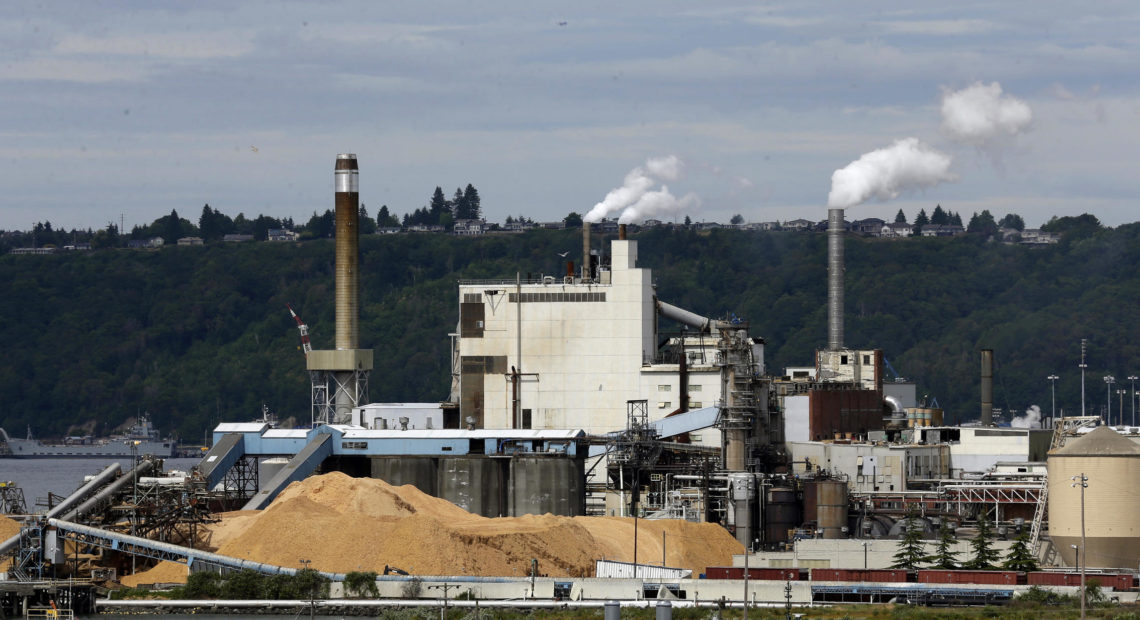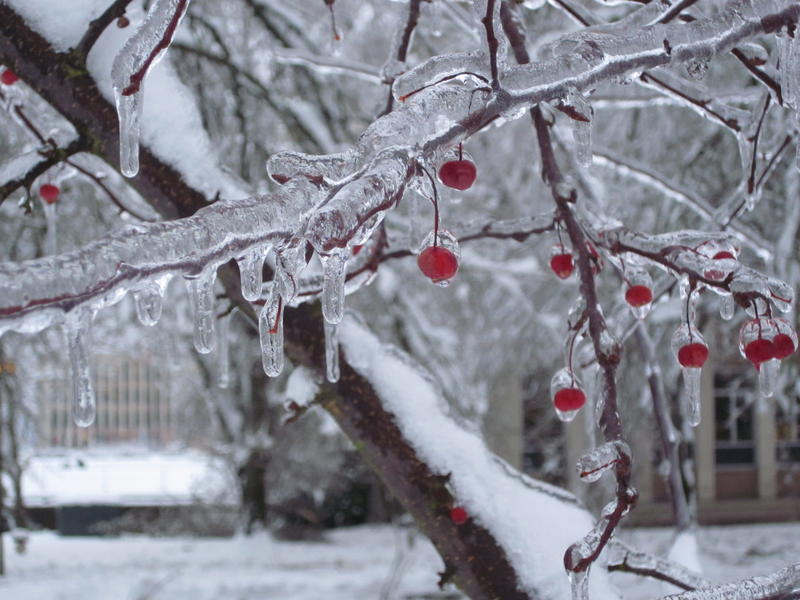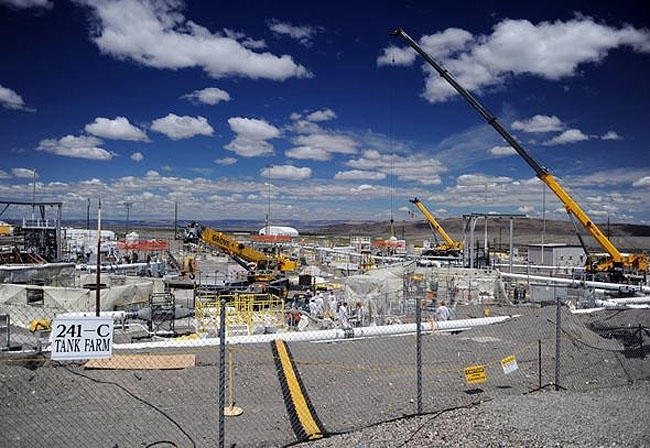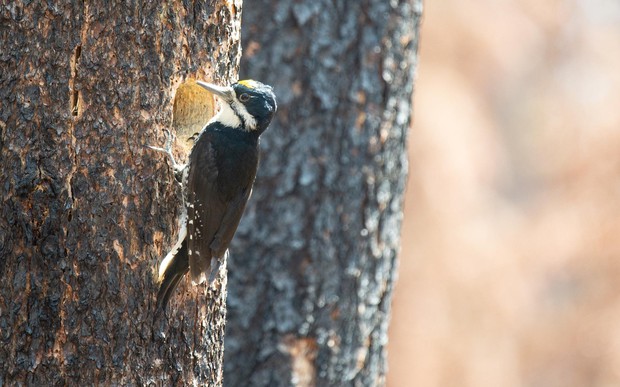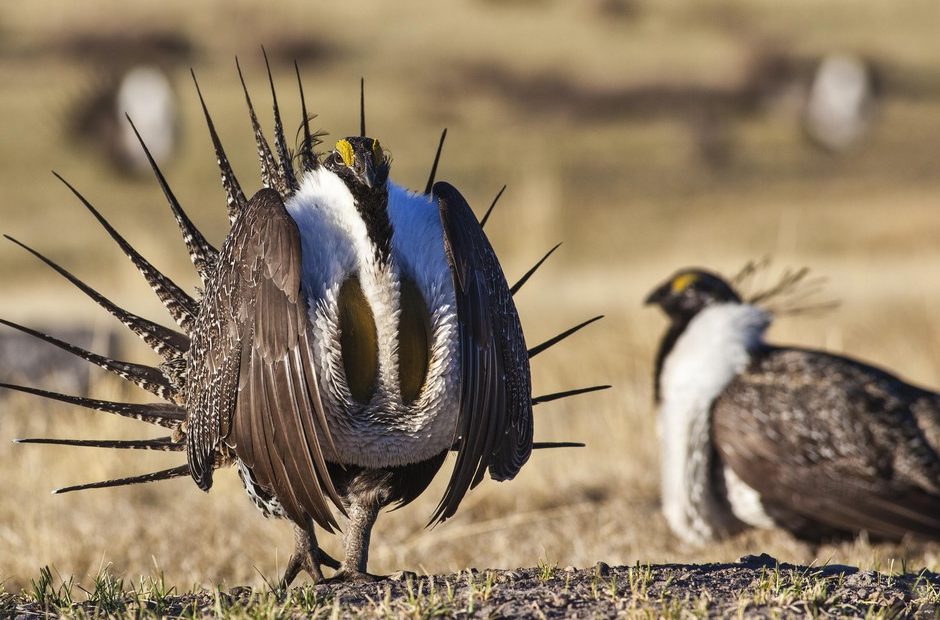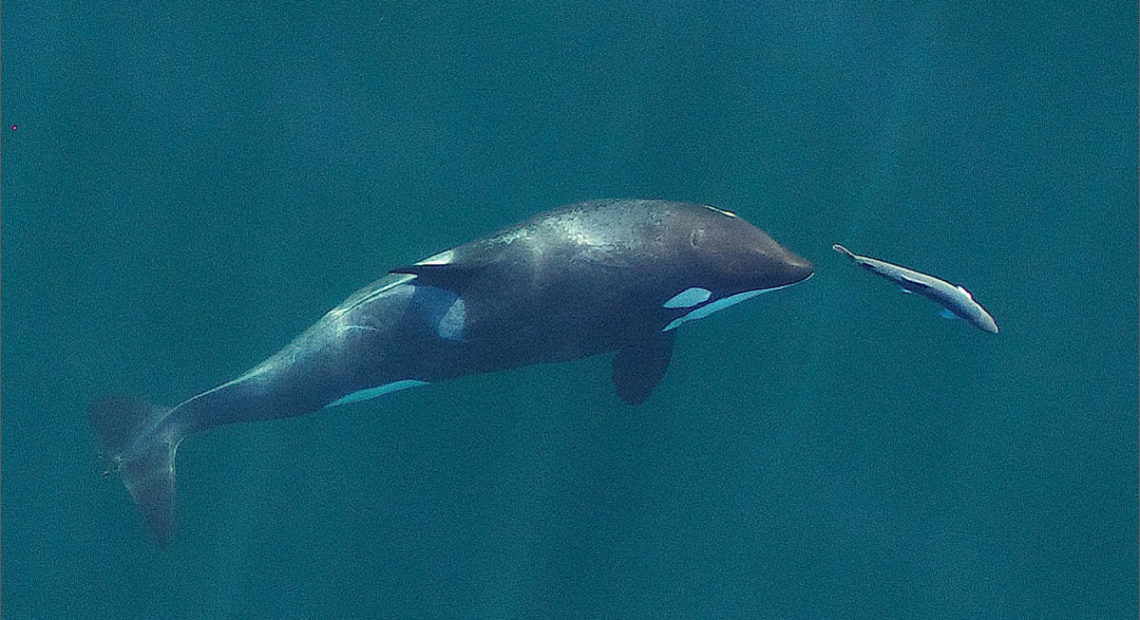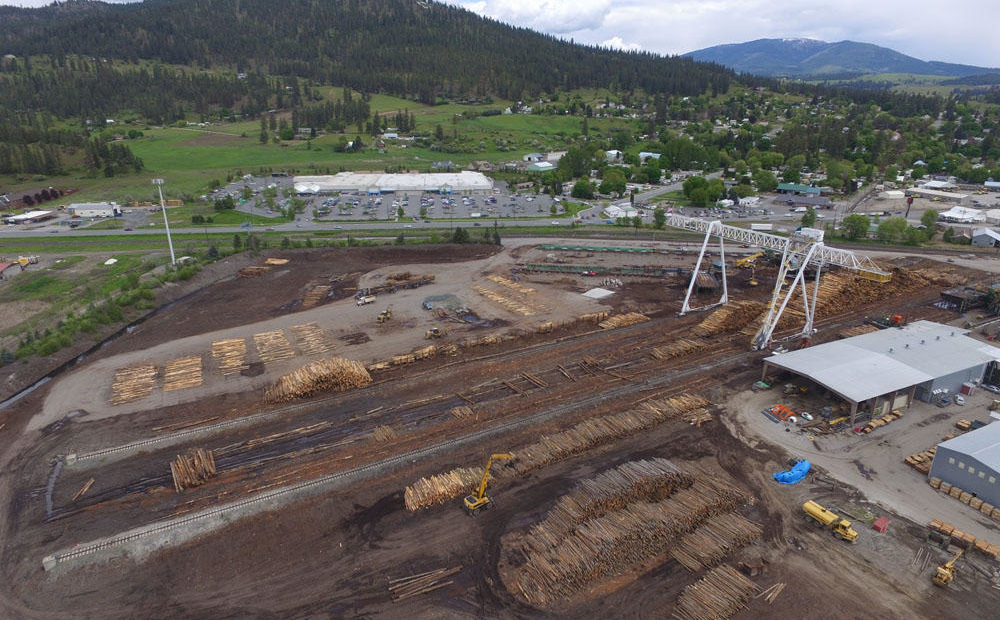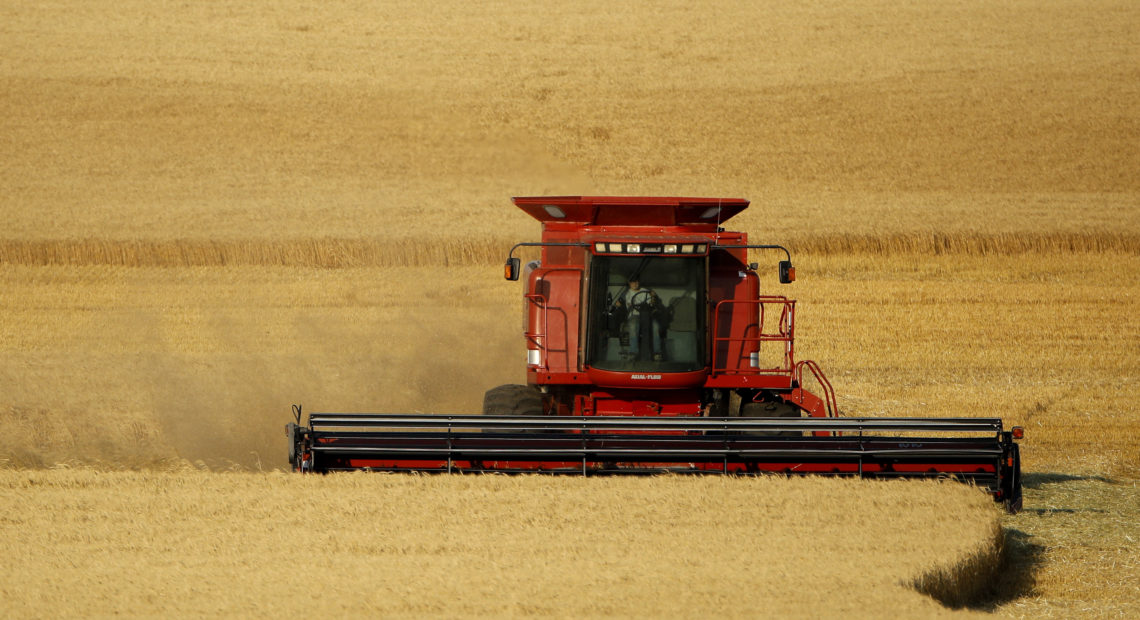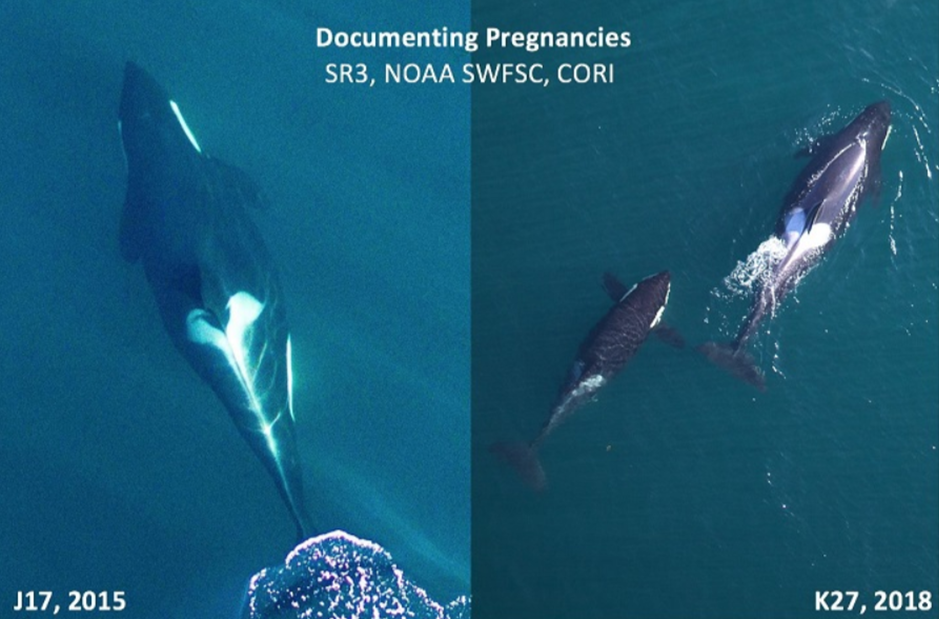Researchers say there's a new calf among the population of critically endangered killer whales that live in the waters between Washington and Canada.Read More
Environment
The Environmental Health Disparities Map ranks neighborhoods from 1 to 10. Ten is coded in red, meaning a higher environmental risk while 1, being the lowest, is coded in blue. On that map, Yakima County is a big, red blemish. Read More
Concern over climate change rose in late November with the release of a United Nations report on limiting global warming. “An ear-splitting wake-up call to the world,” the UN said of […]Read More
A new federal report shows the amount of coal burned for power has fallen to its lowest point in almost 40 years. That’s because natural gas is cheap, renewable energy is growing and coal plants are shutting down.Read More
Washington State Ferries has come up with a plan to replace more than half of its fleet with new, electric-powered ferries. But the new plan faces hurdles from a cost standpoint and limited shipyard capacity.Read More
The city of Vancouver has been fined $60,000 after raw sewage was accidentally released into the Columbia River in 2017. The discharged sewage from Vancouver’s Westside Wastewater Treatment Plant happened during two separate spills in September and October of 2017Read More
A southern resident orca appears to be emaciated, suffering from the disfiguring condition called “peanut head.” Whale researchers encountered the southern resident orcas' J-pod on New Year's Eve as they swam in Haro Strait.Read More
A decommissioned chemical weapons depot and a lone biologist might be the last hope for a population of burrowing owls.Read More
As Ryan Zinke steps down amid a string of ethics investigations, his deputy David Bernhardt — a former oil-industry lobbyist and a polarizing figure — will take over at the Department of the Interior.Read More
The earth's climate has been warming for decades now. But 2018 brought several major new and markedly more precise reports from scientists about what climate change is doing to the weather and how dire they expect the consequences to be.Read More
A new study suggests that salmon will not be immune to the effects of ocean acidification. Scientists found that changes to ocean chemistry disrupt a fish’s ability to smell danger in the water.Read More
A controversial plan to reintroduce grizzly bears to Washington’s North Cascades will not be finished by the end of the year. Federal officials had pushed to bring grizzlies back to wilder parts of the state. Those efforts have stalled.Read More
For six years, Yakima County has been dealing with a complicated problem – nitrates in the groundwater. This month, after missing two other deadlines, a group of citizens tasked with finding a solution finally came up with a plan. For about 2,000 people, that’s good news because they’re closer to clean water. But some critics aren’t so sure. Read More
A new agreement aims to help more young salmon make their way past dams along the Columbia and Snake rivers. The agreement, reached this week, spells out new strategies for spilling more water over the dams — and sending less water through power-generating turbines — each spring. Read More
Federal fishery managers are increasing the catch limits for several West Coast species that were overfished and severely restricted for years. Surveys show depleted populations of yellow eye and bocaccio rockfish, cow cod and ocean perch — all classified as groundfish — are rebounding decades ahead of schedule.Read More
The chemical’s especially dangerous for babies and small children because it can have lasting neurological effects. Chlorpyrifos can blow from orchards into nearby houses; parents who work in orchards can transport the chemical home on their clothes and in their cars; and chlorpyrifos can make its way into developing fetuses through umbilical cord blood.Read More
The Arctic has experienced the "most unprecedented transition in history" in terms of warming temperatures and melting ice, and those changes may be the cause of extreme weather around the globe, according to the National Oceanic and Atmospheric Administration's 2018 Arctic Report Card.Read More
Congress has agreed to make it easier to kill sea lions threatening fragile runs of salmon in the Northwest. A bill approved by the House this week changes the Marine Mammal Protection Act to lift some of the restrictions on killing sea lions to protect salmon and steelhead in the Columbia River and its tributaries.Read More
Fishing groups in California and Oregon joined the legal fray by filing suit against 30 companies, mainly oil producers. The Pacific Coast Federation of Fishermen's Associations, the plaintiff, contends that the fossil fuel industry is at fault for recent warming-related damages to the West Coast's prized Dungeness crab fishery.Read More
This weekend and into next week the Northwest is set to get several blasts of winter weather. That’s welcome news for Washington and Oregon’s water experts. Both states are well below normal for snowpack for this time of year. Read More
An elusive carnivore in the weasel family is roaming free in Washington’s North Cascades for the first time in at least 70 years.Read More
Apparently, salmon don’t like the smell of watercress. The aroma of shrimp doesn’t pique their interest either. And the fragrance, eu de steelhead? A definite no-go.Read More
Washington’s North Cascades will soon see the return of a small, weasel-like predator called the fisher. The carnivores have been missing from the area since the 1930s. Biologists hope the reintroduction next week will follow in the footsteps of other successful efforts in Washington.Read More
Tribal leaders and members from Washington state crossed the Salish Sea to oppose a pipeline that could bring more oil tankers to waters on both sides of U.S.-Canada border. The Canadian government wants to expand the Trans Mountain Pipeline and triple the flow of oil from Alberta to the Pacific coast.Read More
The Northwest is already seeing the effects of climate change, according to a new national climate assessment. Read More
Last year, researchers reported finding 35 kinds of multi-drug-resistant bacteria in the exhaled breaths of killer whales off the San Juan Islands. Sewage treatment plants are usually effective at getting rid of bacteria — that’s their main purpose — but they fail to screen antibiotics and other pharmaceuticals from reaching otters or other aquatic organisms.Read More
Analysts say a perfect storm is making Wyoming, the country's largest coal state, more favorable for oil and gas. Higher oil prices are certainly one factor, says Carl Larry, who advises oil and gas companies with the financial consulting firm Refinitiv in Houston.Read More
Climate change is already causing more frequent and severe weather across the U.S., and the country is poised to suffer massive damage to infrastructure, ecosystems, health and the economy if global warming is allowed to continue, according to the most comprehensive federal climate report to date.Read More
Climate change is expected to increase drought and wildfire vulnerability in forests across the West. But new research out of Oregon State University shows that some places will fare better than others. Read More
If you've traveled the central Oregon coast, you might remember the signs marking Depoe Bay's claim to fame: the "World's Smallest Harbor." But now that harbor is getting even smaller because of accumulating silt. City officials are on tenterhooks because of the problem. Silt buildup renders the fuel dock inaccessible at low tide.Read More
The U.S. House passed a bill Friday that would end federal protections for gray wolves in the Lower 48 states. For wolves in the Northwest, that would mean protections fall to state agencies. Read More
A 12-mile stretch of Highway 97 in north-central Washington outside Omak is one of the state’s most dangerous corridors for wildlife collisions. More than 350 deer are hit each year. New wildlife crossings like those seen over Interstate 90 and Snoqualmie Pass may help.Read More
Bees exposed to a type of insecticides called neonicotinoids dramatically changed their behavior — becoming sluggish, antisocial and spending less time caring for the colony's young, researchers say.Read More
The entire town of 27,000 people was evacuated in front of the wildfire in Northern California. The fire is the latest in a string of disastrous wildfires to hit the state in the past year.Read More
After wildfire season ends each year, land managers start planning what comes next for the areas that burned. Often, the strategy used to ensure the forests return is to salvage log and then replant. But a recent study suggests that in some areas, it might be just as effective to leave the forest alone.Read More
Almost 40 years ago, Scott Nicolai started his stream restoration career taking logs out of the water. A project that’s putting more than 6,000 logs back into remote streams across Central Washington.Read More
Washington officials have authorized the killing of wolves in two more of the state’s packs. Conservationists oppose the move. They say it could only worsen wolf-livestock conflicts. The order comes after wildlife officials confirmed wolves preyed on four cows in one attack and six in another this past fall.Read More
Ballot Initiative 1631 is the latest in a string of failed legislative efforts in the state to charge polluters for the carbon they are emitting. This initiative is the first of its kind nationally because of the billions of dollars it would generate—and it's become one of the most expensive ballot initiative fights in Washington history.Read More
For the last 40 years, something has been missing from Oregon’s Lostine River: coho salmon. Now, 42 coho have made it to the waters in the last two weeks.Read More
The campaign against a ballot measure creating a carbon pollution fee has set a fundraising record for statewide initiatives.Read More
If the long-range forecast from the National Weather Service is right, we have a mild winter ahead of us.Read More
A federal court ruled Wednesday that the Environmental Protection Agency must come up with a plan to protect salmon from warm water temperatures.Read More
Keeping the Columbia River safe is at the core of several public meetings scheduled for Seattle and Portland next week. It all has to do with decisions being made hundreds of miles away in the desert at Hanford. The question regulators are tacking: How do you keep a mostly-empty radioactive waste tank safe for hundreds, thousands even a million years? Read More
Not all wildfire is a force of destruction. Many of our favorite Northwest plants and animals have evolved to depend on it.Read More
The Food and Drug Administration is banning the use of several synthetic flavoring compounds used to infuse flavors such as mint and cinnamon in foods. Environmental groups sued, citing cancer risks.Read More
Grazing restrictions on public lands may have unintended consequences for greater sage grouse, according to a recent study. The imperiled birds depend on habitat on both public and private lands, and much of that habitat can be lost when ranching operations go under.Read More
As the Northwest’s killer whales have gained worldwide attention, more calls are being made to bolster the population of salmon they eat. One big way to do that, supporters say, is by removing Lower Snake River dams. But the federal government isn’t so sure that’s the answer.Read More
On Thursday, a U.S. District Court Judge in Spokane gave the green light to a controversial forest restoration project on Washington’s Colville National Forest.Read More
The new trade agreement signed Sunday at midnight called the USMCA short for the U.S. Mexico, Canada Agreement by the Trump Administration, could change things on some Northwest farms. Farmers are hopeful this new agreement will lift their commodity prices -- many of which are low right now. Read More
The lean profile of the whale known as K25 is yet another sign of trouble for the region’s endangered orcas. Since last November, three members of the long-endangered population have died, most recently an emaciated young female known as J50.Read More

